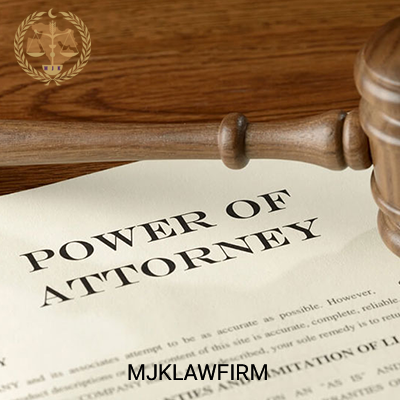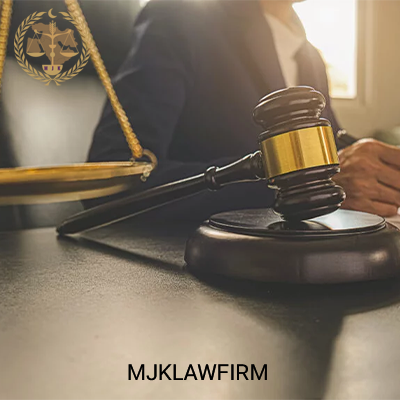Iranian Court Representation for Foreigners and Non-Resident Iranians: What You Need to Know
Iranian Court Representation for Foreigners whether you are an international business facing a contractual dispute or an overseas Iranian involved in a property, inheritance, or family matter, understanding how to engage with Iran’s judicial system is critical. Iranian courts maintain unique legal requirements for representing foreign nationals and non-resident Iranians, and navigating these without experienced legal support can be challenging and risky. This article explains how foreign clients—whether individuals or companies—can appoint a lawyer in Iran, what the court process entails for non-residents, and what practical steps can ensure effective legal representation.in mjklawfirm
What Does It Mean to Be Represented in an Iranian Court?
Iranian Court Representation for Foreigners in Iran, legal representation in court proceedings requires formal appointment through a valid power of attorney (PoA) and compliance with Iranian procedural laws. Foreigners and non-resident Iranians can be involved in:
- Civil litigation (e.g., debt recovery, contractual disputes)
- Commercial litigation (e.g., joint venture or agency disputes)
- Family matters (e.g., divorce, custody, inheritance)
- Criminal defense
- Administrative claims against government agencies
Iranian courts allow foreign parties to appoint local attorneys, but certain documentation and formalities must be observed to ensure the lawyer’s authority is recognized by the court.

Follow us in social media
How to Appoint a Lawyer in Iran as a Foreigner or Non-Resident
- . Drafting a Valid Power of Attorney (PoA)
The first and most critical step is preparing a legally valid PoA. This document:
Must clearly define the scope of legal authority granted to the lawyer
Should include the client’s full legal name, nationality, passport number, and address
Must be notarized and legalized through the Iranian consulate in the client’s country of residence
Tip: Some embassies may require dual-language documents (e.g., Persian and English/Arabic).
2. Consular Legalization
A PoA signed abroad must be:
Notarized in a foreign jurisdiction
Legalized at the Iranian embassy or consulate (some may request further authentication from the local Foreign Ministry)
Once received in Iran, the PoA must be registered with the Iranian Bar Association or the court, depending on the case type.
3. Choosing the Right Lawyer in Iran
Foreign clients should seek:
Lawyers fluent in English or the client’s native language
Proven experience in international, commercial, or cross-border disputes
Understanding of Iranian court procedures and foreign party requirements

Litigation in Iran for Foreign and Non-Resident Clients: What to Expect
A. Jurisdiction Rules
Iranian courts have jurisdiction when:
- The dispute occurred within Iran
- The subject property or obligation is located in Iran
- One party is domiciled in Iran
Foreign nationality alone does not exempt a party from Iranian jurisdiction.
B. Language and Translation
All documents submitted to Iranian courts must be in Persian (Farsi). Foreign documents (contracts, passports, certificates) must be officially translated and certified by approved translators in Iran.
C. Service of Process
Foreign parties must ensure proper notification procedures under Iranian law, especially if they reside abroad. Courts may require proof of delivery through diplomatic channels or Iran’s Bureau for Foreign Nationals.
D. Remote Participation
Iranian courts currently do not support remote hearings for parties abroad in most cases. The lawyer represents the client in person, which makes the PoA critical. In some civil cases, testimony may be taken through the Iranian consulate
Common Legal Issues Foreign Clients Face in Iran
1. Contractual and Commercial Disputes
Foreign companies often litigate:
- Breach of contract
- Non-payment by Iranian counterparts
- Disputes under agency, distribution, or joint venture agreements
Debt collection in Iran
2. Inheritance and Property Matters
Many overseas Iranians are involved in:
- Division of inherited property
- Validation of wills
- Enforcement of foreign court orders (e.g., divorce or estate decisions)
Estate lawyers in Iran
3. Family Law Disputes
Dual nationals may face complex challenges in:
- Child custody across borders
- Divorce recognition
- Guardianship and child support
Common Mistakes and How to Avoid Them
Failing to properly legalize the PoA: An improperly prepared or unregistered PoA is not valid in court.
Hiring lawyers without court representation rights: Some legal consultants lack the license to appear before Iranian courts.
Assuming foreign court judgments are automatically enforceable: Iran does not recognize all foreign rulings. Recognition requires a separate legal action.
Relying on informal intermediaries: Always work with licensed, transparent legal professionals to avoid fraud.

How Our Firm Assists Foreign Clients in Iranian Courts
At MJK Law Firm, we specialize in:
- Representing foreign companies in commercial litigation
- Advising overseas Iranians on inheritance, family, and real estate disputes
- Preparing valid powers of attorney
- Providing bilingual legal services in English, Arabic, and Persian
- Coordinating document translation and consular procedures
- Pursuing the enforcement of foreign judgments and arbitration awards
We combine local court expertise with an international outlook, making us a trusted partner for cross-border legal issues involving Iran.
Frequently Asked Questions (FAQs)
Can a foreigner sue someone in Iran?
Yes. Foreign nationals can initiate lawsuits in Iran, provided they appoint a licensed lawyer through a valid PoA and follow Iranian court procedures.
❓ Do I need to travel to Iran for my case?
Not necessarily. Your physical presence is not required in most civil or commercial cases if you have appointed a lawyer with the correct authority.
❓ How long does it take to resolve a case in Iran?
Case duration varies. Civil cases may take several months to over a year. Having a lawyer experienced in court procedure can reduce delays.
❓ Will the court accept documents from abroad?
Only if officially translated into Persian and certified by an approved translator. Foreign court rulings or contracts must also be legalized through consular channels.
❓ Is my foreign judgment automatically valid in Iran?
No. Iran may require a separate recognition procedure, and the foreign court’s ruling must meet certain reciprocity and fairness criteria.
Final Thoughts
Litigation in Iran as a foreign party or non-resident Iranian requires more than just legal expertise—it demands a deep understanding of consular procedures, local court expectations, and cross-cultural communication. Whether you’re enforcing a commercial contract, defending a property claim, or resolving a family dispute, the right lawyer in Iran can make all the difference.
📞 Need Representation or Legal Advice?
If you’re a foreign national or an overseas Iranian facing a legal issue in Iran, contact a Lawyer in Iran today. Our firm offers tailored legal representation, from commercial disputes to family law, helping you confidently navigate the Iranian legal system.
